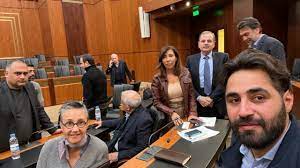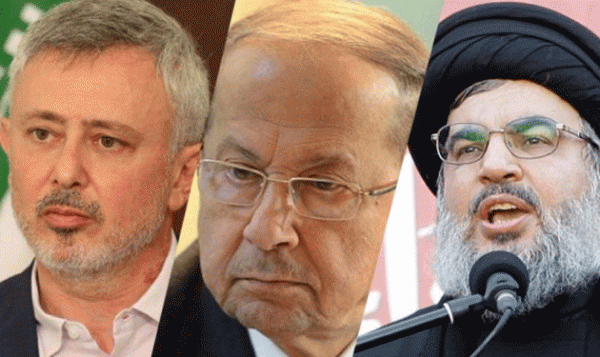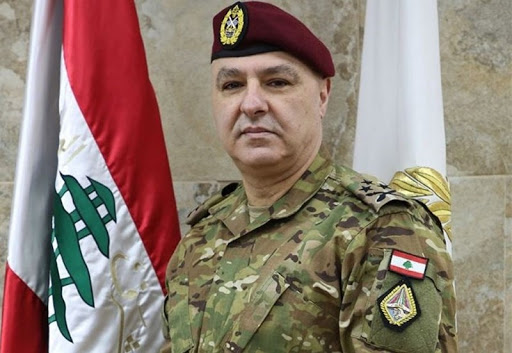On Monday, Qatar will, for the first time, join a meeting in Paris along with officials from France, Saudi Arabia and the US for discussions focusing on Lebanon’s political and economic crises. It will be showcasing Qatari growing influence in Lebanon.
The five-way “consultative-administrative” meeting on the current crisis in Lebanon, which will be held in Paris, will include, in addition to France, the United States, Egypt, Saudi Arabia and Qatar, amid low expectations for success.
It is not expected that the meeting will identify names of acceptable candidates for the position of president, which has remained vacant since the beginning of November, but could determine the specifications for the next head of state.

Analysts say these specifications are not expected to win Hezbollah’s approval, unless Qatar is able to ensure “consensus” over a middle-of-the-road figure, who does not face objections from the opposition and important blocs such as the Christians. This might be the case with General Joseph Aoun, the Lebanese Army chief.
Many experts believe the meeting is likely to fail because of Iran , which is represented by Qatar in the meeting
Faced with sanctions over its role in Ukraine and the secret activities within its nuclear programme, Tehran is unlikely to to accept any concessions that would weaken Hezbollah’s dominance over Lebanese institutions or threaten its economic interests in the country.

The meeting will not achieve much more than an expression of French concern for Lebanon’s predicament and the willingness of Paris to provide help to the the crisis-plagued country .
Although some Sunni and Christian opposition parties have welcomed the meeting, they nonetheless do not foresee any breakthroughs that would pave the way for an end to the impasse over the current presidential vacuum.
Whatever its outcome, the meeting will put the spotlight on Qatar’s widening role in Lebanon.
Doha has been silently expanding its influence in the country. It has continued receiving Lebanese leaders and pumped tens millions of dollars into helping the country’s armed forces amid an historic economic meltdown.
The small, gas-rich nation in late January began seeing the fruits of its investment, when state-owned Qatar Energy replaced a Russian firm in an international consortium that will search for gas in the Mediterranean Sea off Lebanon’s coast.
Qatar portrays itself as a more neutral force in a country where for decades outside powers have used Lebanon’s sectarian divisions to fight their proxy battles. Saudi Arabia long backed Lebanon’s Sunni Muslim factions and tried to drive out Iran’s influence through Shiite Hezbollah. The rivalry repeatedly pushed Lebanon to the brink of armed conflict.
Qatar, which has good ties with Iran, has been trying to advance negotiations between Tehran and Gulf nations. Its inclusion in the Paris talks “is a signal that Iran will not be completely left out of that meeting and a recognition of the influence that Tehran has over Lebanon,” said Mohamad Bazzi, a professor and director of the Hagop Kevorkian Centre for Near Eastern Studies at New York University.
“With Saudi Arabia and other Gulf states less heavily involved in Lebanon, Qatar is trying to revive its mediator role in the country,” he said.
A history of Qatar in Lebanon
Still, Qatar, one of the richest countries in the world with its natural gas wealth, so far “has shown little sign of being willing to bail out Lebanon on its own,” Bazzi said.
Qatar’s involvement in Lebanon is not new.
After the 34-day war between Israel and Hezbollah in 2006, Qatar helped rebuild several towns and villages that suffered major destruction in southern Lebanon. Giant billboards with signs reading “Thank You Qatar” popped up around Lebanon.
In May 2008, after Hezbollah and its allies battled their Western-backed rivals in Beirut’s worst fighting since the 1975-90 civil war, Lebanese political leaders flew to Qatar, where they reached a deal known as the “Doha Agreement.” The deal ended an 18-month deadlock and brought the election of a new president and formation of a new government. In the calm that followed, massive foreign investment flowed in, and Lebanon’s economy grew at an average of nine percent for three years.
In December 2018, then-President Michel Aoun inaugurated the newly-rehabilitated Lebanese National Library in Beirut, funded by Qatar at a cost of $25 million. The current emir’s mother, Sheikha Moza bint Nasser al-Missned, had laid the foundation stone for the project in the heart of Beirut in 2009.
Saudi Arabia has pulled back from Lebanon in recent years as Hezbollah’s power grew. Last year, the main Saudi ally in Lebanon, former Prime Minister Saad Hariri, a dual Lebanese-Saudi citizen, announced he was suspending his work in politics.
In 2020, Riyadh banned imports of Lebanese products after a Lebanese official derided the Saudi-led military intervention in Yemen. Several other Gulf countries followed suit, but Qatar did not.
Qatar doubled down on its investment as Lebanon’s economy collapsed.
There are reports that Doha plans to pump money into Lebanon’s struggling banking sector to buy one of the country’s lenders.
In June, Qatar donated $60 million to support the salaries of members of the Lebanese army. It was already supporting the soldiers with monthly supplies of food. Strengthening Lebanon’s military has long been a policy of the United States, which sees the force as a counterbalance to Hezbollah.
A week ago, three months after Lebanon and Israel signed a US-mediated maritime border agreement, Qatari Energy Minister Saad Sherida al-Kaabi joined Lebanese officials in Beirut for a ceremony inking an agreement for Qatar to take a 30% share in a consortium for oil and gas exploration in Lebanese waters.
According to the agreement, Qatar Energy will take over the 20% stake vacated by Russia’s Novatek in addition to 5% each from Italy’s giant ENI and France’s TotalEnergies leaving the Arab company with a stake of 30%. Total and ENI will have 35% stakes each.
In the political field, Qatar has not openly backed any party. But it reportedly supports the Lebanese Army commander, General Joseph Aoun, to become the country’s next president. Aoun, who is not related to the recently-departed president, was invited to visit Qatar in December and met high-level officials. Hezbollah is believed to oppose him.
As it often does, Qatar is advancing its economic and political interests together, said Lebanese economist Antoine Farah. It is ensuring income from its investments while gaining a political role in the country where it invests.
But Ali Hamade, a journalist with the Lebanese daily An-Nahar, said Qatar, like other Gulf nations, will want to see Lebanon’s political leaders enact serious reforms.
“Lebanon should help itself in order for Arabs to help Lebanon. Lebanese politicians cannot sit and wait for money to rain from the sky,” Hamade said.
Arab Weekly


Leave a Reply
You must be logged in to post a comment.